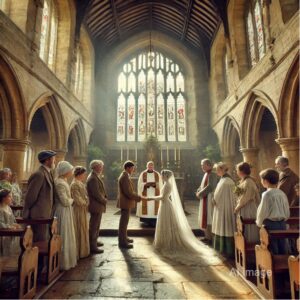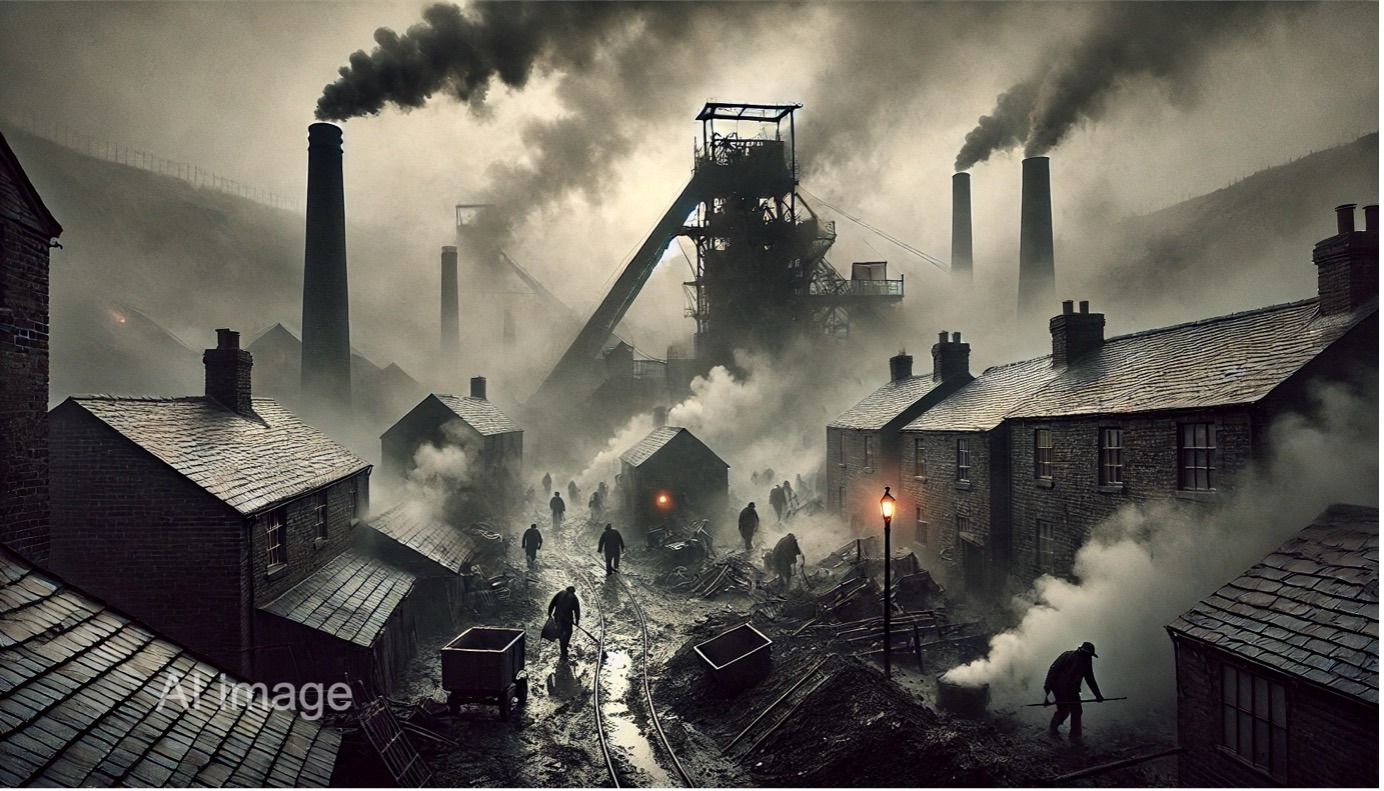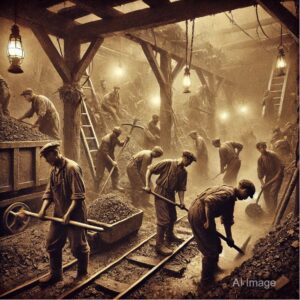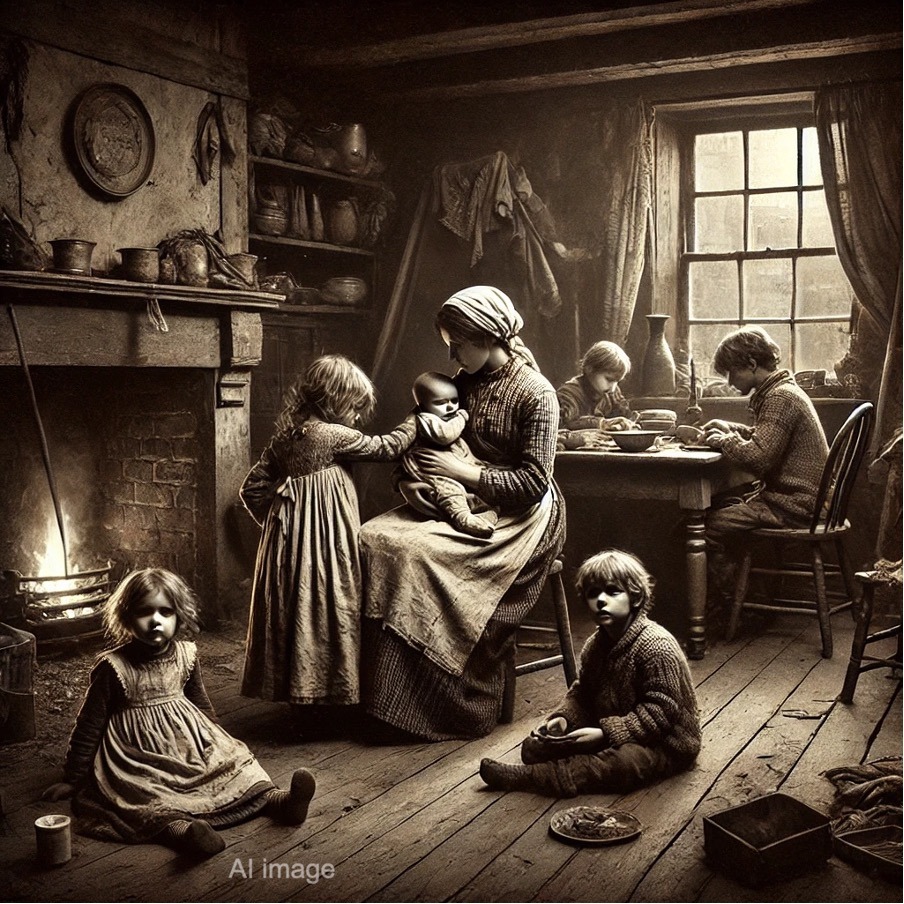The Musings of a Family Historian.

The marriage of a young couple in mid 19th century England.
How difficult it is sometimes to write in great detail about my ancestors! I wrote my paternal family history with relative ease, so why am I struggling with my maternal family history? I have researched them reasonably thoroughly and there’s plenty of data to work with. There may be many explanations for this apparent literary lassitude. My ancestors were average people and very few of them had extraordinary lives. I am older, elderly in fact and the creative juices appear to have thinned out somewhat. I have a cousin, also interested in our family history but unfortunately unable to work collaboratively. Yes, I know, they’re all feeble excuses!
The difficulty seems to be, how to structure and present their stories. Initially, I had a very ambitious plan. I considered starting with all the research that dates right back to the 18th century, and I would attempt to tell the stories of each family that lived during that time simultaneously. I thought I could perhaps set their stories against a backdrop of events occurring during that period of time. This would provide context to their stories. Then I could work forward to the 19th century and eventually to the 20th century, repeating the process of telling the stories of all the maternal families during their respective timeframes, again within the context of events occurring at local, national and international levels. Like I said, an ambitious project! I started to feel overwhelmed at the enormity of such a task. After some thought and time, I abandoned that idea and so it was back to the drawing board.
My next plan was to relate each individual’s story and to present it in movie format. I have enjoyed making family movies for several decades and the idea of using this medium had many attractions. Making movies about family history is very different to writing their stories. Whilst a good script is required, oodles of relevant photos (video footage is preferable) are also needed and for obvious reasons, that tends to be a definite obstacle. The storyline and script need to be moulded together in a meaningful way and movie making tools are needed to maximise visual appeal to your audience. Careful selection of background music is required to enhance the mood. Despite all these requirements, I commenced on this project which was enjoyable and was applauded by the younger members of my family. They loved it especially after I discovered and added AI generated voice and images.

Image of a typical industrial centre of 19th Century England.
This was a great boost to the whole production. Instead of my familiar voice, I was able to select an AI voice that was suited to my ancestor. For example, I could use a British male voice when needed and instead of worrying about copyright images I was able to create a required image using ChatGPT, ensuring that there was a watermark to indicate the use of this wonderful technology! Plus, it was fun…for a while. Perhaps it was the writer in me, but I started to have doubts about the movie making industry. My own brother (bless his cotton socks!) complained, “But it’s not authentic. It’s only in your imagination”. I started to think, “Is this really how my family want to learn about their family history”? Even though, my motivation has waned a little, I remain interested in developing this medium as a way of informing younger generations about long forgotten stories of past family members. Besides, it is fun!

Image depicts coal miners labouring in a coal mine of 19th Century England.
Yet another idea has occurred about how to record and relate the stories of my maternal ancestors. Instead of writing a lengthy saga as required for method number one, this idea involves presenting the lives of each individual in a timeline. A consistent timeline structure would be needed and all pertinent information completed. Having completed that task, my next aim would be to search for any event or incident that is unique to each individual. This may include an item of oral history, an anecdote or folklore tale about each ancestor. In other words, I need to find something unique and remarkable about each person, in order to produce a story authentic to each individual. Perhaps this story could be different to those events recorded in the timeline. This approach does seem to be more realistic and doable to me. Maybe when completed, this approach could become the basis for a movie production, or I could then write the full story using method number one…if I should live so long!
Thanks for reading this unravelling of my thoughts and problems. It has been a cathartic exercise and has definitely helped me to know how to proceed. I will start with my last idea and method so wish me luck! Perhaps you have experienced similar issues and maybe my ramblings have assisted you as well.

This image depicts a woman with several children whose ages range from 12years to a few months.

Thanks for sharing Beverley. I’ve just been going a similar process trying to work out where to start writing the story of my daughters’ paternal ancestors. I pondered over quite a few days on where to start.
It can be really difficult knowing how and where to start. I think it’s a good idea to think about who is going to read your story and then tailor your format to cater to their needs. Having said that, I also think it’s a good idea to still make it your story so that your readers can sense your passion. What is the most captivating aspect of your ancestor’s lives? Is that helpful Di? Thankyou for your comment Di.
I only joined GSQ today and found this section very interesting. Thank you for sharing your Family History Blog, Beverley. I can relate to your dilemma as I am in the same position as you, wanting to produce a book for the family before I get much older, but I have never been a good writer of stories.
Hi Lyn, Bobbie Edes here, I am the Blogs Editor. I am so pleased you found our GSQ Blogs interesting, they are published each Monday by our talented bloggers from all over, with some about ancestors, some about genealogy in general and some about how to do different tasks. Many of our bloggers are members of our Writing Group and I can thoroughly recommend joining that as it is a great learning aid to begin your family history writing.
Hi Lyn, I’m so pleased that you can understand my situation. I must say that my strategy seems to be working although…ever so slowly! I’m sure you will be surprised at how your love for your family history will help you to write those stories. I hope to see you at the Writing group meetings. all the best!
Bev, loved reading your musings about possible approaches and thoughts about the young ones among your audience. Best wishes for what is to come!
Thanks Janice, I am pleased to say that I have benefited from this blog as it has given me a plan of action that is working!
Re-inserted by Blogs Admin after website malfunction on behalf of Beverley Murray.
Hi Beverley, I was so impressed at your movie-making approach to telling your family history stories. I don’t have the skill or resources to attempt such an approach, but I found your whole ‘musings’ blog a very interesting read. I’m currently developing timelines for my late wife’s four great grandmothers, as I am writing blogs (for GSQ Blogs) on each of those women. I’m only using the timeline as a guide to events in their life and where I might search for records about them as well as how world or local events may have affected them.
Using timelines as a guide for your crafting stories is a great approach Ross.
Thankyou Ross. Your approach to your writing sounds really good. I agree that an understanding of events on a local level as well as further afield, in our ancestor’s time adds greatly to our understanding of who they were and their behaviour. I will look out for your blogs and read them with real interest. Writing my blog was a cathartic exercise and has given me the impetus I so badly needed to get started!